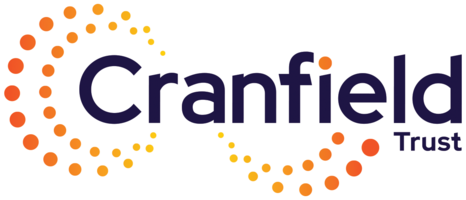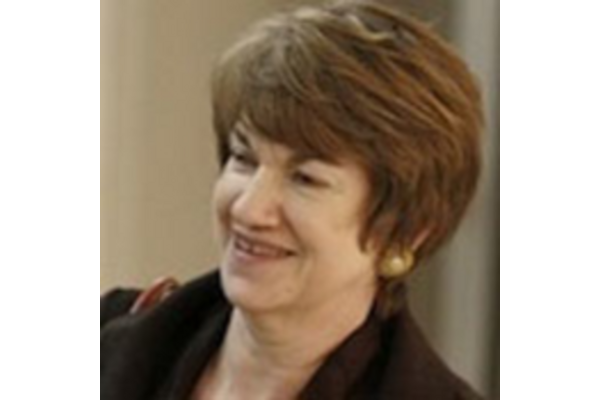Gaynor Humphreys is just coming to the end of her nine years as a Cranfield Trust trustee but despite retiring nearly ten years ago, Gaynor’s trustee days are far from over. Gaynor shares her insight and exceptional knowledge with us in this blog as we mark Trustee Week and the difference trustees make during challenging times.
How things have changed
There was much less awareness of what Trusteeship meant when I first started, and that's a long time ago now! If you became a member of the Executive Committee of, for example, a council for voluntary service in the 70s and 80s, almost nobody would have realised that meant being a trustee and the high degree of responsibility for the charity you therefore held. You were viewed as just a member of a committee. At the time, many charities were unincorporated organisations, which meant that you could be carrying a lot of legal and financial responsibility unawares.
Charities then started to be more aware of the responsibilities and the risks, and the Charity Commission became more active in raising awareness and being clearer about trusteeship. There was a sea change and everybody began to take it a lot more seriously. So there has been a big change across the whole sector in awareness of the charity governance and the responsibilities of being a trustee.
I first became aware of Cranfield Trust when I worked for London Funders. The Trust offered regular briefings and sector learning, which I passed on to funders in London, both charitable foundations and local authorities and other statutory funders. From insights Amanda Tincknell (CEO) shared, we all learned a lot about emerging issues in the sector for small and medium charities. Cranfield Trust helped us offer training to funders around understanding more about their grantees’ issues in managing finances, budgets and cash flow. One consequence of this was being approached by Cranfield Trust to become a trustee as soon as I retired!
Learning from the pandemic
The most rapid change I have seen in the Trust was a result of the coronavirus pandemic – the team started to rethink the way services were offered as soon as we went into lockdown and learned how to offer services online. The range of services changed, the way they were delivered changed, and the scale changed very quickly. As a board we tried to be supportive of this growth of new or different services, though we also needed to be very aware of how finances had to change to measure up to the ambition. In that challenging period you realised how crucial it was to have a board that knows the organisation well and what the team has the potential to deliver.
Trustees, of course, bear the brunt of pressures pretty much second hand. It's the staff who are coping with the front line. As the pandemic continued trustees needed to be aware of the relentless pressure that staff were under. It’s been wonderful to see an increase in the number of organisations Cranfield Trust has reached and the wider range of types of support. But as trustees, it's been important that we've recognised that we can't just assume that staff can meet the endless demand. We need to have an oversight of their wellbeing, now more than ever, as they’re still recovering from the impact of the pandemic on charities, which are now hit with the cost of living crisis.
During the pandemic we saw trustees in some charities having to get involved in the operations of charities but it is important to disentangle this sort of volunteering from the governance role of trustees. It can be really hard for trustees to avoid becoming involved in operational delivery, but it is important to maintain a strategic overview as a trustee.
How to be an effective trustee
Every trustee brings something different to the table and having a broad mix of skills and experience on the board is important. The professional experience trustees bring can be a huge asset and support to the charity. For example, I’ve worked locally and nationally with many different kinds of organisations and in several different parts of the country as well. That has helped me have a feel for the pressures of running smaller charities and of regional differences, which is really useful background for my role in the Trust. Getting governance right seems more important than ever because of the threats that so many organisations face and this is an essential role of the trustee board.
I have recently undertaken a ‘Board Effectiveness Review’ in my trustee role with Cranfield Trust. As a board we were having discussions about how much the organisation has changed, but we hadn’t changed our board agendas, policies or processes to match the extent of the changes and growth, so it was the right time for a review.
The review involved interviews with board members and, with the help of a Cranfield Trust volunteer, senior members of staff, to identify ways to improve our processes and ways of working. It has enabled very lively and constructive conversations. There was a lot of agreement about what we could do to work even more effectively. It’s important to consider doing this type of review on a regular basis.
In my experience, there are many ways to build an effective board and positive relationship between the board and the staff team. Here’s some of my thoughts:
- You need to be committed and loyal to the organisation. I had been engaging with Cranfield Trust long before I became a trustee so I already had a high degree of familiarity with the organisation and felt positively about its vision and services
- Be aware of what the responsibilities are without letting them make you feel too hamstrung, and know the boundaries between the board and staff, particularly senior leaders. You need to know that you shouldn’t jump into operations and try and keep a strategic overview
- Know the organisation well, and be a critical friend, exercising judgment in a way that makes it clear that you have the interests of the organisation at heart. You need to be objective, so that if things are not running as well as they should you are able to challenge and question.
- You need to offer quite a lot of time, so make sure you have an idea of this before you commit. Ask about the meetings: how frequent, how long, where they are, will you be part of a sub-committee etc. Reading the papers can take a few hours on top for each meeting.
- Have a good mix of skills, experience and backgrounds. The Trust is taking the right steps to improve our diversity and we have recently recruited people with some really specific skills in HR and IT too. We can go further and will continue to do so as we are recruiting for a new board member. Expertise of board members is crucial. We have board members very willing to share their expertise and specialist knowledge, but also people with a wide knowledge and experience of the sector. It’s important if you recruit people with specific skills to remember that they also need to be concerned about the organisation as a whole and will have plenty to offer outside their specialism.
- Create opportunities for the trustees to get to know senior leaders and staff, perhaps attending team meetings and having some social time after the formal meetings. Like any other team, a board of trustees also need to be able to work together, so it’s important to also consider this and allow time to get to know each other. Now that it is possible again, face to face meetings are much the best way of doing this.
Final pieces of advice
Be really serious about the commitment that's involved in being a trustee. Be sure that you can give it enough time.
Don't be afraid of asking questions. It’s important to get to know the organisation well and feel confident that you understand each of the issues being discussed, so don't be afraid of asking questions in board meetings. Even if you think they’re basic, it’s important to understand the topic being discussed and you might find that other people are tuning into the answers as well!
Be a critical friend to the charity you are supporting. Get to know it well enough to be able to challenge constructively and support it in ambitions and growth.
Next steps
When I finish as a trustee for Cranfield Trust I will miss my fellow board members for whom I have a huge amount of respect. They’re amazing people with extraordinary skills and insights to offer.
I am however hoping to keep some nice future connections with Cranfield Trust. In fact, in one of my other trustee roles for a small grant-making charity, we have asked for a volunteer consultant to help us with our strategic plan. We're waiting to hear from Cranfield Trust and meet our volunteer very soon!




